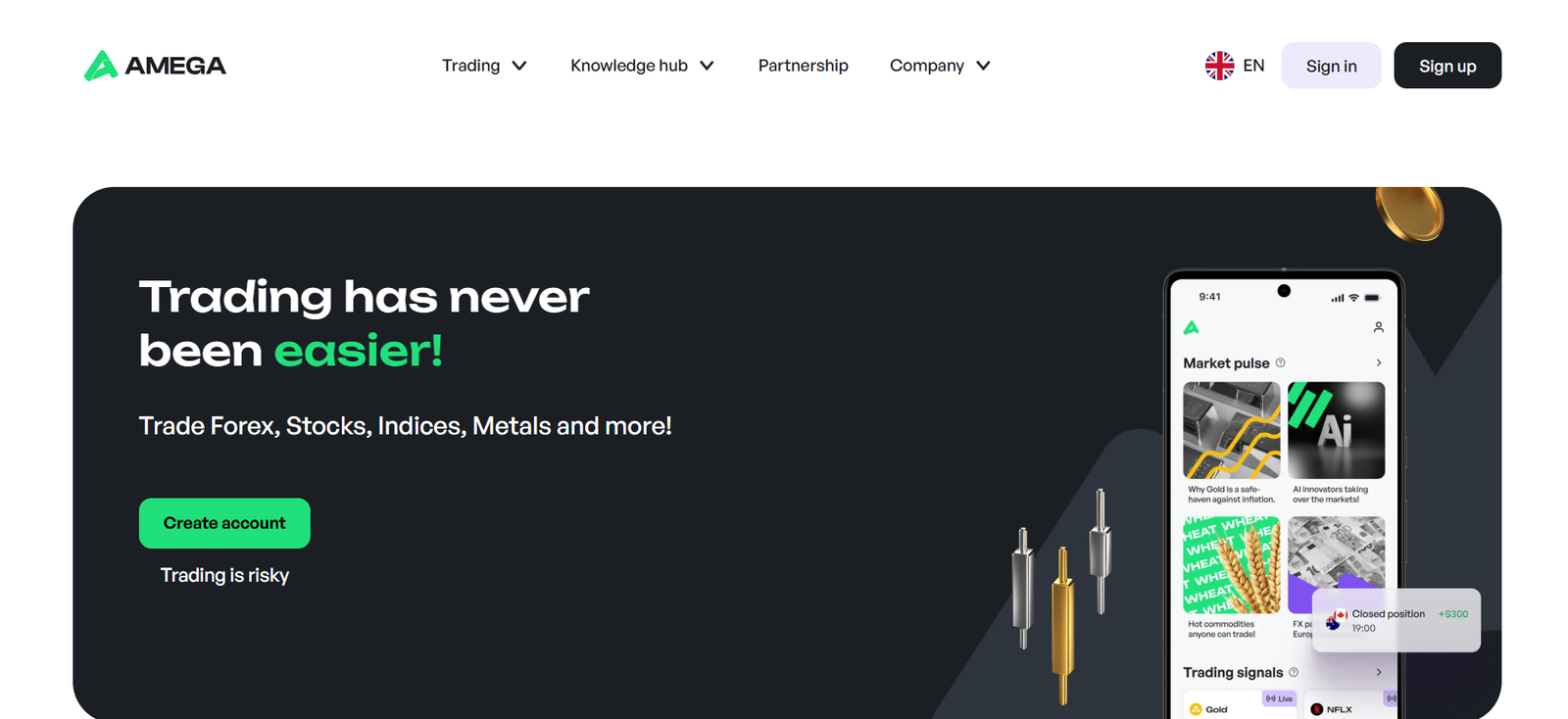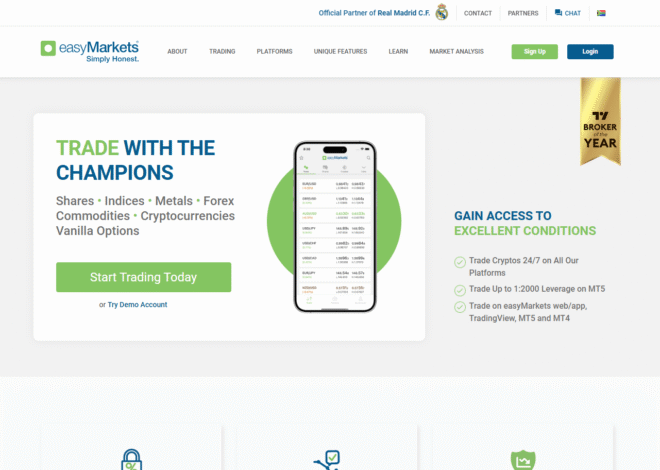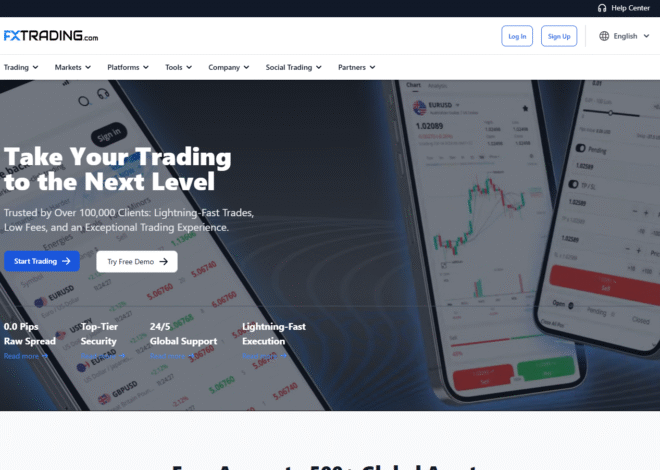
Amega Finance EXPOSED: Read This Critical Warning Before Investing
The world of online trading promises unparalleled opportunities, but beneath the veneer of high returns and sophisticated platforms often lurk predatory entities designed to exploit unsuspecting investors. Our in-depth investigation casts a harsh spotlight on Amega Finance, a broker platform that has drawn significant scrutiny and a litany of alarming complaints. This article serves as an urgent public warning, meticulously detailing the red flags, regulatory deficiencies, and pervasive user experiences that paint a deeply concerning picture of Amega Finance operations. Before you consider depositing a single cent, understand the significant risks and the truth behind the marketing.
Regulatory Warnings and Compliance Issues: A Troubling Lack of Oversight
One of the most immediate and glaring red flags surrounding Amega Finance is its precarious regulatory standing. In the volatile and often opaque world of online trading, robust regulation from reputable financial authorities is not merely a suggestion; it is a fundamental requirement for investor protection. Our findings indicate that Amega Finance operates with a severe lack of credible oversight, leaving its clients exposed to significant risks.
Unlicensed Operations and Jurisdictional Ambiguity
Amega Finance frequently presents itself as an international broker, but a closer examination reveals a troubling absence of licenses from top-tier financial regulators such as the Financial Conduct Authority (FCA) in the UK, the Australian Securities and Investments Commission (ASIC), or the Cyprus Securities and Exchange Commission (CySEC), which regulate many legitimate European brokers. Instead, the company often cites registrations in jurisdictions known for their lax regulatory environments, if any at all. This lack of robust licensing means that investors dealing with Amega Finance are effectively operating outside the protective frameworks designed to safeguard their funds, ensure fair trading practices, and provide avenues for dispute resolution.
Specific Regulator Alerts and Public Warnings
Our research indicates that various financial watchdogs have issued explicit warnings against entities operating under the Amega Finance banner or similar names. For instance, several national regulators have added such entities to their investor alert lists, cautioning the public against engaging with them due to their unauthorized activities or suspicious practices. These warnings, often buried in official government websites, are critical indicators that Amega Finance is not deemed safe or legitimate by established financial authorities.
- FCA (UK) Warnings: The Financial Conduct Authority often publishes warnings against firms operating without authorization. While a direct, recent warning specifically naming “Amega Finance” might evolve, the FCA consistently advises against dealing with unregulated firms.
- CONSOB (Italy) Alerts: Italy’s CONSOB has a history of issuing warnings against unauthorized investment firms, often including those that target European citizens without proper licensing.
- BaFin (Germany) Alerts: Germany’s BaFin also frequently issues investor warnings against companies that are not authorized to provide financial services in Germany.
These regulatory bodies underscore a crucial point: if a broker is not licensed in your jurisdiction, or by a globally recognized regulator, your investment is at extreme risk. The absence of such regulation means there is no independent body to turn to if Amega Finance defaults, manipulates trades, or refuses withdrawals.
The Illusion of Regulation: Registration vs. Licensing
Amega Finance may attempt to mislead potential clients by citing “registrations” in obscure offshore locations. It is crucial for investors to understand the vast difference between a mere company registration (which simply means a business exists on paper in a particular location) and a full financial services license issued by a reputable regulatory body. A license imposes strict capital requirements, mandates client fund segregation, enforces transparent reporting, and provides robust consumer protection mechanisms. A simple registration offers none of these. This deceptive practice is a common tactic among questionable brokers to create a false sense of legitimacy.
Analysis of User Complaints: A Pattern of Distress and Financial Loss
Beyond regulatory concerns, the most damning evidence against Amega Finance comes from the consistent and overwhelmingly negative feedback from its users. Across various independent review platforms, forums, and consumer advocacy sites, a disturbing pattern of complaints emerges, pointing to systemic issues that go far beyond isolated incidents. These complaints are not just about minor inconveniences; they detail significant financial losses, emotional distress, and outright deception.
Pervasive Withdrawal Problems: The Ultimate Red Flag
By far the most frequent and severe complaint leveled against Amega Finance concerns its withdrawal process. Users consistently report extreme difficulties, prolonged delays, and outright refusals when attempting to access their own funds.
- Endless Verification Requests: Clients are often subjected to an endless loop of “Know Your Customer” (KYC) document requests, with new documents demanded even after previous ones have been submitted and supposedly approved. This tactic is used to indefinitely delay or outright block withdrawals.
- Unresponsive Support: Once a withdrawal request is initiated, customer support often becomes unresponsive, providing generic excuses or simply ignoring inquiries.
- Hidden Fees and Terms: Some users report being informed of exorbitant, previously undisclosed fees or obscure bonus terms that effectively trap their funds, making withdrawal impossible without forfeiting a significant portion of their balance.
- Account Freezes: In more extreme cases, accounts are suddenly frozen or closed without explanation, with all funds becoming inaccessible.
These withdrawal issues are not isolated incidents but appear to be a fundamental operational characteristic of Amega Finance, strongly suggesting a “deposit-only” model where funds can easily enter but rarely leave.
Aggressive Sales Tactics and Unsolicited Calls
Many individuals report being subjected to relentless and high-pressure sales calls from representatives of Amega Finance. These “account managers” often employ manipulative tactics:
- Guaranteed Profits: Promising unrealistic and often impossible returns on investment.
- Urgency and Fear of Missing Out (FOMO): Pressuring clients to deposit larger sums quickly, citing limited-time offers or imminent market movements.
- Misleading Information: Providing false or exaggerated information about market conditions, company performance, or the expertise of their traders.
These tactics are designed to override rational decision-making and coerce individuals into investing more than they can afford to lose, often with devastating consequences. Learn how to spot common trading scam tactics to protect yourself from predatory brokers.
Account Manipulation and Slippage Allegations
Serious allegations have surfaced regarding the manipulation of trading conditions. Users claim to have experienced:
- Excessive Slippage: Trades being executed at prices significantly different (and always worse for the client) than what was displayed, especially during volatile periods.
- Stop-Loss Hunting: Suspicious price spikes that trigger stop-loss orders, only for prices to immediately revert, suggesting deliberate manipulation.
- Platform Freezes: Trading platforms freezing during critical market moments, preventing clients from closing losing trades or opening profitable ones.
Such practices, if true, indicate a broker that is actively working against its clients’ interests, rather than merely facilitating trades.
Poor Customer Support: Unresponsive and Unhelpful
Beyond withdrawal issues, the general quality of customer support for Amega Finance is consistently criticized. Users describe support as:
- Unresponsive: Emails and chat messages go unanswered for extended periods.
- Unhelpful: When responses are received, they are often generic, uninformative, or fail to address the core issue.
- Evasive: Support staff often deflect questions about withdrawals or regulatory compliance, providing vague answers.
This lack of effective support further isolates clients and prevents them from resolving even basic account issues, let alone significant financial disputes.
Deceptive Marketing Tactics and Misleading Promises
To attract new clients, Amega Finance employs a range of deceptive marketing tactics designed to create an illusion of credibility, profitability, and trustworthiness. These tactics are often sophisticated, preying on the hopes and financial aspirations of individuals.
Unrealistic Profit Guarantees and “Managed Accounts”
A common lure used by questionable brokers like Amega Finance is the promise of guaranteed, high returns with little to no risk. They may offer “managed accounts” where alleged expert traders will handle investments, assuring clients of consistent profits. These claims are fundamentally at odds with the realities of financial markets, where high returns always come with high risk, and guarantees are impossible. Legitimate brokers will always emphasize the risks involved in trading, not downplay them.
Fictitious Partnerships and Endorsements
To bolster their perceived legitimacy, Amega Finance might fabricate partnerships with well-known financial institutions, technology providers, or even celebrities. They may display logos of reputable companies on their website without actual authorization or create fake testimonials from supposedly successful traders. These are classic scam tactics designed to trick potential investors into believing the platform is more established and trustworthy than it actually is.
“Bonuses” That Trap Funds: The Withdrawal Barrier
Amega Finance often entices new clients with attractive “welcome bonuses” or deposit matching offers. While these might seem generous, they almost invariably come with extremely stringent and often impossible-to-meet terms and conditions. These clauses typically stipulate that clients must trade an exorbitantly high volume before they can withdraw any funds, including their initial deposit. This effectively locks clients’ money into the platform, making it nearly impossible to retrieve, even if they stop trading or incur losses. This practice is a major source of Amega Finance complaints.
Lack of Transparency: Obscure Terms and Conditions
The terms and conditions on Amega Finance’s website are often deliberately vague, complex, or difficult to find. Important clauses regarding withdrawals, fees, and dispute resolution are either hidden or phrased in such a way as to be easily misinterpreted. This lack of transparency is a hallmark of platforms that do not intend to operate fairly or honor their commitments.
The Anatomy of a Potential Broker Scam: How Amega Finance Operates
Understanding the operational blueprint of platforms like Amega Finance is crucial for identifying and avoiding potential financial fraud. The patterns observed in user complaints and regulatory warnings paint a clear picture of a system designed for asset accumulation rather than legitimate trading facilitation.
The Deposit Funnel: Easy Entry, Impossible Exit
The initial stages of interaction with Amega Finance are often smooth and encouraging. Depositing funds is typically made incredibly easy, with multiple payment options and prompt processing. This contrasts sharply with the arduous and often fruitless attempts to withdraw money, reinforcing the “deposit funnel” model where money flows in easily but is nearly impossible to retrieve.
High-Pressure Account Managers: Pushing for More
Once an initial deposit is made, clients are frequently assigned an “account manager” who acts as a primary point of contact. While seemingly helpful, these individuals are often trained sales operatives whose primary goal is to persuade clients to deposit increasingly larger sums. They may push clients into making trades they don’t understand, leverage their accounts excessively, or pressure them into accepting “bonus” offers that further trap their capital. Many victims of Amega Finance report losing significant sums under the guidance of these aggressive “advisors.”
Disappearing Act: When Accounts Are Frozen or Closed
In many reported cases, when clients push too hard for withdrawals, refuse to deposit more, or become too persistent with their inquiries, their accounts with Amega Finance are suddenly frozen or closed. Communication ceases, and all access to funds and trading history is lost. This “disappearing act” is a common end game for many financial scams, leaving victims with no recourse. Read more about the common tactics used by unregulated brokers to defraud investors.
Withdrawal Problems: A Major Red Flag for Amega Finance Users
It bears repeating: the inability to withdraw your own money is the most significant and alarming indicator of a fraudulent operation. The sheer volume and consistency of withdrawal complaints against Amega Finance should serve as a flashing neon warning sign to anyone considering their services.
Common Excuses for Withholding Funds
Users attempting to withdraw funds from Amega Finance often encounter a predictable playbook of excuses:
- “Technical Issues”: The platform claims there are system errors, processing delays, or technical glitches preventing withdrawals, which mysteriously never get resolved.
- “KYC Requirements”: As mentioned, an endless cycle of new or re-submitted identification documents, often with increasingly stringent or obscure demands, is used to stall.
- “Bonus Terms”: Clients are suddenly reminded of complex bonus clauses that tie up their entire balance, making withdrawal contingent on unrealistic trading volumes.
- “Third-Party Delays”: Blaming banks, payment processors, or other external entities for the delays, despite providing no verifiable evidence.
These excuses are designed to exhaust the client’s patience and deter them from pursuing their funds.
The Emotional Toll on Victims
The financial loss associated with platforms like Amega Finance is often compounded by significant emotional and psychological distress. Victims report feelings of betrayal, anger, helplessness, and severe stress. The realization that their hard-earned money has been stolen, often after being manipulated by seemingly helpful “account managers,” can have long-lasting psychological impacts.
Documenting Your Evidence: A Crucial Step
For anyone who has engaged with Amega Finance, it is imperative to document every interaction. This includes:
- Screenshots of the trading platform, account balance, and trade history.
- Records of all deposits and withdrawal requests.
- Copies of all communications (emails, chat logs, call recordings if possible) with Amega Finance representatives.
- Any promotional materials or terms and conditions received.
This evidence will be vital if you decide to pursue legal action or report the firm to authorities.
Protecting Yourself: What to Do If You’ve Engaged with Amega Finance
If you have already deposited funds with Amega Finance or suspect you might be a victim of their practices, immediate action is necessary.
Immediate Steps to Mitigate Further Loss
- Cease All Communication: Stop responding to calls, emails, or messages from Amega Finance representatives. They may attempt to persuade you to deposit more or offer “solutions” that further complicate your situation.
- Do Not Deposit More Funds: Under no circumstances should you deposit additional money, regardless of the promises or threats made.
- Gather All Evidence: As outlined above, meticulously collect all documentation related to your interactions, transactions, and communications with Amega Finance.
- Attempt a Chargeback: If you deposited funds using a credit card or certain online payment processors, contact your bank or card issuer immediately to inquire about initiating a chargeback. There are strict time limits for these claims, so act quickly. Debit card protections are generally weaker, but still worth investigating.
Reporting to Authorities and Seeking Assistance
Reporting your experience is crucial, not only for your potential recovery but also to help prevent others from falling victim.
- Financial Regulators: Report Amega Finance to the financial regulatory body in your country or region. Even if they are not licensed there, these bodies often maintain alert lists and can collaborate with international counterparts.
- FCA (UK): If you are in the UK, report to the Financial Conduct Authority.
- ASIC (Australia): If in Australia, report to the Australian Securities and Investments Commission.
- National Consumer Protection Agencies: Many countries have consumer protection agencies that handle fraud complaints, such as the Federal Trade Commission (FTC) in the US.
- Police/Law Enforcement: For significant financial fraud, consider filing a report with your local police department.
- Consumer Advocacy Groups and Forums: Share your experience on reputable consumer protection forums and review sites. This helps warn others and can sometimes lead to collective action. Websites like Forex Peace Army are excellent resources for reporting broker scams and reading user reviews.
Seeking Legal Counsel
For substantial losses, consulting with a lawyer specializing in financial fraud or asset recovery may be a viable option. They can assess your case, advise on the best course of action, and potentially assist in tracing funds or pursuing legal claims.
Comparing Amega Finance to Reputable Brokers: The Hallmarks of Trust
To truly understand the risks posed by Amega Finance, it’s helpful to contrast their operations with those of legitimate, regulated brokers. The differences are stark and highlight what investors should always look for.
Key Characteristics of Legitimate Brokers
- Robust Regulation: Licensed by major, reputable financial authorities (e.g., FCA, ASIC, CySEC, FINRA, BaFin, etc.) in multiple jurisdictions.
- Client Fund Segregation: Client funds are held in segregated bank accounts, separate from the broker’s operational capital, ensuring they cannot be used for company expenses and are protected in case of insolvency.
- Transparency: Clear, easily accessible terms and conditions, transparent fee structures, and honest disclosure of risks.
- Fair Trading Practices: No evidence of price manipulation, excessive slippage, or stop-loss hunting. Fair execution of trades.
- Responsive and Ethical Support: Professional customer service that genuinely assists clients and adheres to ethical guidelines.
- Easy Withdrawals: A smooth, predictable, and timely withdrawal process, without arbitrary delays or hidden conditions.
When evaluating any broker, these criteria should be your absolute minimum requirements. The absence of even one of these points, particularly robust regulation and reliable withdrawals, should be a deal-breaker.
Conclusion: Steer Clear of Amega Finance – Your Financial Safety Is Paramount
Our exhaustive investigation into Amega Finance reveals a disturbing landscape of regulatory non-compliance, pervasive user complaints regarding withdrawal difficulties, aggressive sales tactics, and deceptive marketing. The overwhelming evidence points to a platform that operates with a blatant disregard for investor protection, prioritizing its own financial gain over the security and well-being of its clients.
The numerous red flags – from the lack of credible regulation and specific regulatory warnings to the consistent reports of withheld funds and manipulative practices – coalesce into a clear and unambiguous warning: Amega Finance poses a significant threat to your financial security.
We strongly advise all potential investors to AVOID Amega Finance entirely. If you have already engaged with them, take immediate action to protect your remaining assets, gather all relevant evidence, and report your experience to the appropriate financial authorities and law enforcement agencies. Your vigilance and proactive steps can not only help you recover but also prevent others from becoming victims of similar schemes. In the complex world of online trading, due diligence is not just a recommendation; it is your strongest defense against financial fraud.
External Links Reference Table
| Anchor Text | URL |
|---|---|
| Read more about the common tactics used by unregulated brokers to defraud investors. | https://www.financemagnates.com/fintech/news/unregulated-brokers-warned-against-by-regulators-general-article/ |
| Forex Peace Army | https://www.forexpeacearmy.com/ |
| Financial Conduct Authority (FCA) – How to report a scam | https://www.fca.org.uk/scamsmart/report-scam |


